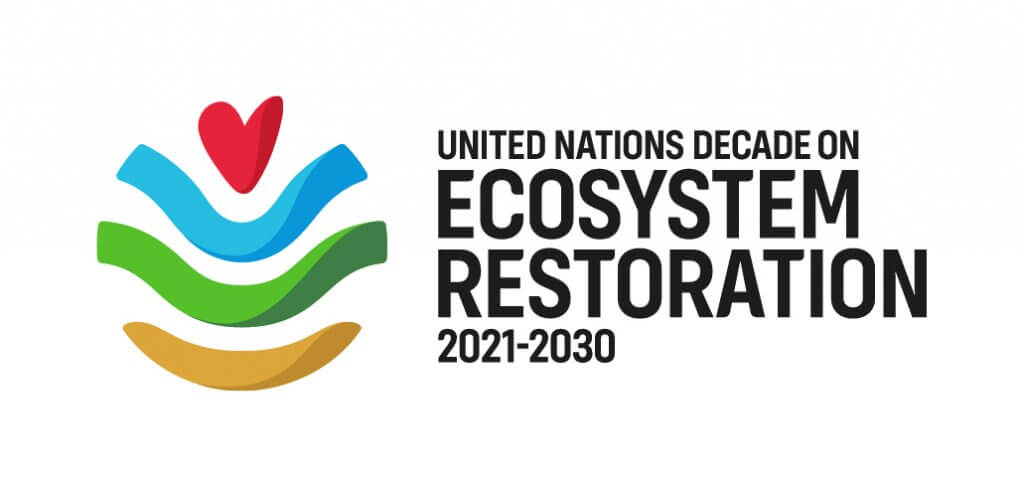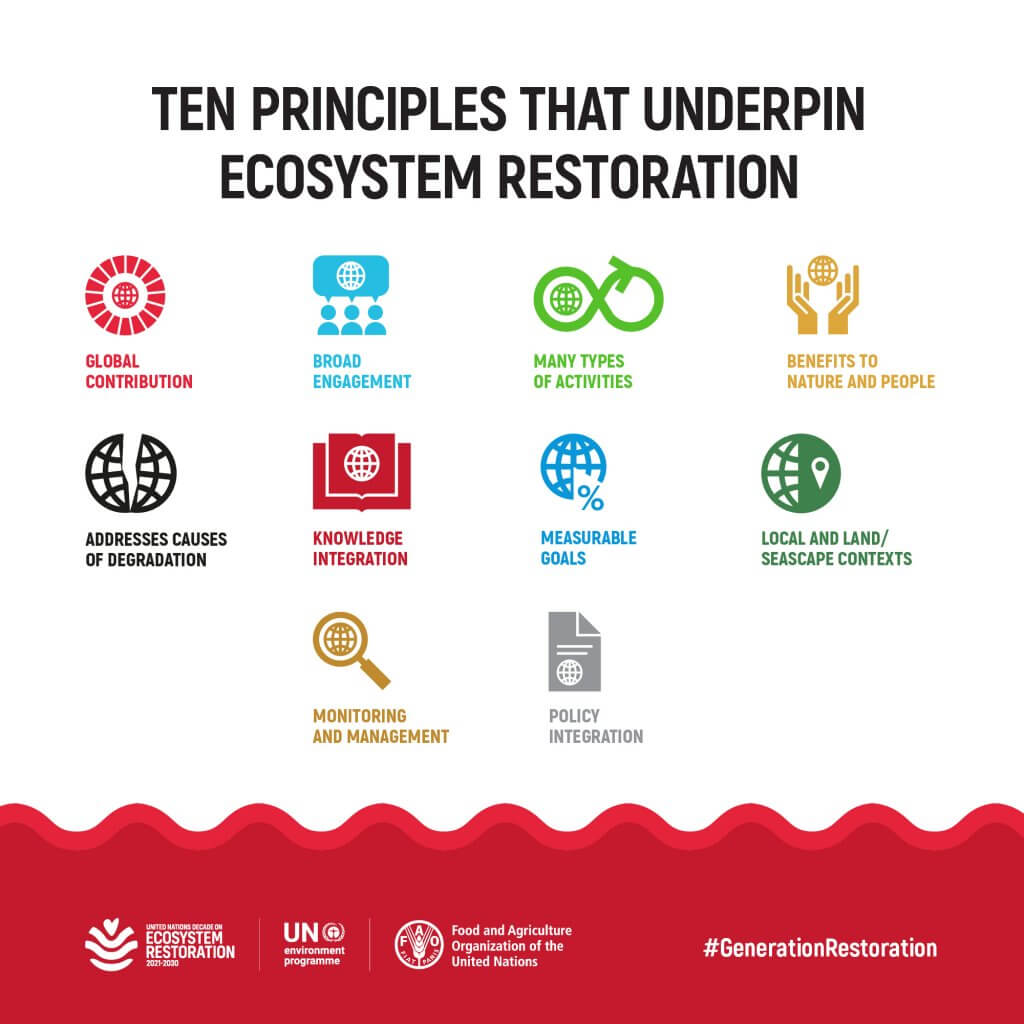The United Nations dedicates days, weeks, years, or even decades to specific topics, to raise awareness and stimulate action on them [1]. Currently there are several of these UN Decades running. In this post I will talk about one of them that could be of interest to you: The UN Decade on Ecosystem Restoration, which has started this year and will continue until 2030.
Ecosystem degradation
Human-induced ecosystem degradation has been going on for a long time. It does not only harm nature and wildlife, but also us humans, as our wellbeing is closely linked to ecosystem health. It is estimated that 40% of the world’s population is affected by ecosystem degradation in one form or another, with the greatest impact falling on poor and vulnerable people [2]. Ecosystem degradation takes on many forms, including land use change, pollution, and the introduction of invasive species [2]. The exploitation of natural resources and degradation of ecosystems is happening under ever-accelerating rates – and we are now at risk of reaching tipping points in some ecosystems [2]. Past these points, our ecosystems cannot recover to their natural state anymore. Degraded ecosystems cannot provide us with the same essential ecosystem services any longer and lose their biodiversity and integrity [2].
The degradation of ecosystems has gone so far that simply protecting what is left is not enough. As the UN puts it, “we need more nature” [2]. This can be achieved by restoring the ecosystems that we have destroyed. Ecosystem restoration is defined by the UN as “the process of halting and reversing degradation, resulting in improved ecosystem services and recovered biodiversity” [2]. Engaging with this process looks different around the world, as the action needed depends on local conditions [2].
What the UN does about it

To raise awareness of this issue and combat ecosystem degradation as well as biodiversity loss, the UN initiated the UN Decade on Ecosystem Restoration. This was decided on in a resolution by the UN General Assembly in March 2019 [2]. Its aim is to “prevent, halt and reverse the degradation of ecosystems worldwide” [3], while contributing to combat poverty, climate change, and the current mass extinction. The UN emphasizes that large-scale ecosystem restoration worldwide is needed to meet the Sustainable Development Goals (SDGs) by 2030 [3]. Ecosystem restoration can also have direct economic benefits. By the numbers: it is estimated that for every dollar spent on ecosystem restoration, between three and 75$ are returned in form of ecosystem goods and services [3]. Furthermore, ecosystem restoration can contribute immensely to climate change mitigation and future resilience against climate change, reduce the risk of future pandemics, increase food security, and halt biodiversity loss [2].
One of the main goals of this UN Decade is to enhance the understanding of these benefits of successful ecosystem restoration and to include this knowledge in education as well as public and private sector decision-making [3]. Besides this, a goal is to strengthen the commitments and actions on ecosystem restorations at various levels world-wide [3]. The vision of the UN Decade is “a world where – for the health and wellbeing of all life on Earth and that of future generations – the relationship between humans and nature has been restored, where the area of healthy ecosystems is increasing, and where ecosystem loss, fragmentation and degradation has been ended” [3].
Yet, there is currently too little political support and technical capacity to achieve the necessary large-scale changes worldwide. Therefore, the UN Decade works to support governments, NGOs and stakeholders to achieve the vision [3]. They do this, for example, by raising awareness, furthering research and monitoring of global restoration progress, building technical capacity, and creating a platform for actions to take place [3]. UN members are encouraged to integrate ecosystem restoration into national policies and plans, enhance implementation of ecosystem protection and restoration by mobilising resources, and enable scientific research on the impacts of restoration [3]. The UN Decade can also be seen as a catalyser for a decentralized global movement to protect and restore nature [3]. For this, we need people that participate and do the actual work of restoring ecosystems locally – not only during the UN Decade, but also well after 2030.
Taking action
Ecosystem restoration can take on many forms and depends on the ecosystem and its status. Approaches can include repairing the damage that was done to the ecosystem or removing the drivers of ecosystem degradation, thereby inducing the ecosystem to repair itself [2]. All these approaches require time and resources, enabling policies, and knowledge [2]. Ten principals are meant to guide the restoration actions of the UN Decade:

The UN has also published an “Ecosystem Restoration Playbook”, in which it outlines how you can get involved. Examples are creating, joining, or donating to a restoration project, cleaning up your local ecosystem, greening your home, or buying sustainable products. You can also spread the word and raise awareness about ecosystem degradation and restoration. If you take action and become part of the #GenerationRestoration movement, you can make a pledge online. On the UN Decade’s website you can also take an interactive journey through various ecosystems and find upcoming events. Some of them take place online and are free to join!

References:
[1] https://www.un.org/en/observances/international-decades , last accessed 10.10.2021
[2] UNEP (2021). Becoming #GenerationRestoration: Ecosystem restoration for people, nature and climate. Nairobi. Available online: https://www.decadeonrestoration.org/publications/becoming-generationrestoration-ecosystem-restoration-people-nature-and-climate
[3] UNEP and FAO (2020). Strategy for the UN Decade on Ecosystem Restoration. Available online: https://www.decadeonrestoration.org/strategy










gooooooooooooooood